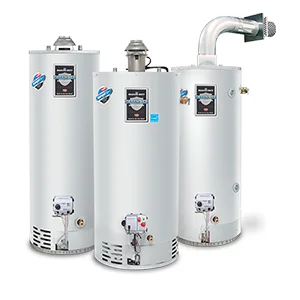Are you tired of chilly showers and cold taps? Say goodbye to shivers and hello to warmth with hot water geysers! In this comprehensive guide, we’ll explore everything you need to know about these essential appliances, from how they work to the benefits they offer. Get ready to dive into the world of hot water geysers and discover why they’re a must-have for every home.
What is a Hot Water Geyser?
Also known as a water heater, it is a device that heats water for various domestic purposes, such as bathing, cooking, and cleaning. It consists of a tank, heating element, thermostat, and insulation to maintain water temperature. When you turn on the tap, hot water flows out, providing instant warmth and comfort.
How Do They Work?
Hot water geysers work on a simple principle of heating water and storing it for later use. Inside the geyser, there is a heating element, usually powered by electricity or gas, that warms the water in the tank to the desired temperature. The thermostat controls the temperature, ensuring that the water remains at the set level. When you need hot water, it is released from the tank and delivered to your taps or shower heads.
Types
There are several types of geysers available, each with its own features and benefits:
1. Electric Geysers: These geysers use electricity to heat water and are suitable for homes with reliable power supply. They come in different capacities and sizes to suit different household needs.
2. Gas Geysers: Gas geysers use natural gas or propane to heat water, offering an energy-efficient alternative to electric geysers. They are ideal for areas with limited access to electricity or frequent power outages.
3. Solar Geysers: Solar geysers harness the power of the sun to heat water, making them an environmentally friendly and cost-effective option. They are particularly popular in regions with abundant sunlight.
4. Instant Geysers: Instant geysers, also known as tankless or on-demand geysers, heat water only when it is needed, eliminating the need for a storage tank. They are compact, energy-efficient, and provide endless hot water supply.
Benefits
They offer several benefits that enhance the comfort and convenience of daily life:
1. Comfort: Enjoy warm showers and baths, regardless of the weather outside, with hot water available at your fingertips.
2. Hygiene: Hot water helps kill germs and bacteria, ensuring cleanliness and hygiene in your kitchen and bathroom.
3. Convenience: Say goodbye to heating water on the stove or waiting for the kettle to boil—geysers provide instant access to warm water whenever you need it.
4. Energy Efficiency: Modern geysers are designed to be energy-efficient, helping you save on utility bills while reducing your carbon footprint.
5. Versatility: With various types and sizes available, you can choose a geyser that meets your specific requirements and fits seamlessly into your home.
Maintenance Tips
To ensure optimal performance and longevity of your geyser, follow these maintenance tips:
1. Regular Inspection: Check for leaks, corrosion, or signs of wear and tear on a regular basis.
2. Flushing: Flush the tank periodically to remove sediment buildup, which can affect heating efficiency.
3. Temperature Adjustment: Set the thermostat to a suitable temperature to prevent scalding and minimize energy consumption.
4. Professional Servicing: Schedule annual servicing by a qualified technician to inspect and tune up your geyser for optimal performance.
5. Insulation: Insulate hot water pipes and the geyser tank to minimize heat loss and improve energy efficiency.
In Conclusion,
These are indispensable appliances that bring warmth, comfort, and convenience to every home. With various types and models available, you can choose the perfect geyser to suit your needs and lifestyle. By following proper maintenance practices, you can ensure that your geyser continues to provide reliable hot water for years to come. Say goodbye to cold showers and hello to endless warmth with a hot water geyser in your home.








